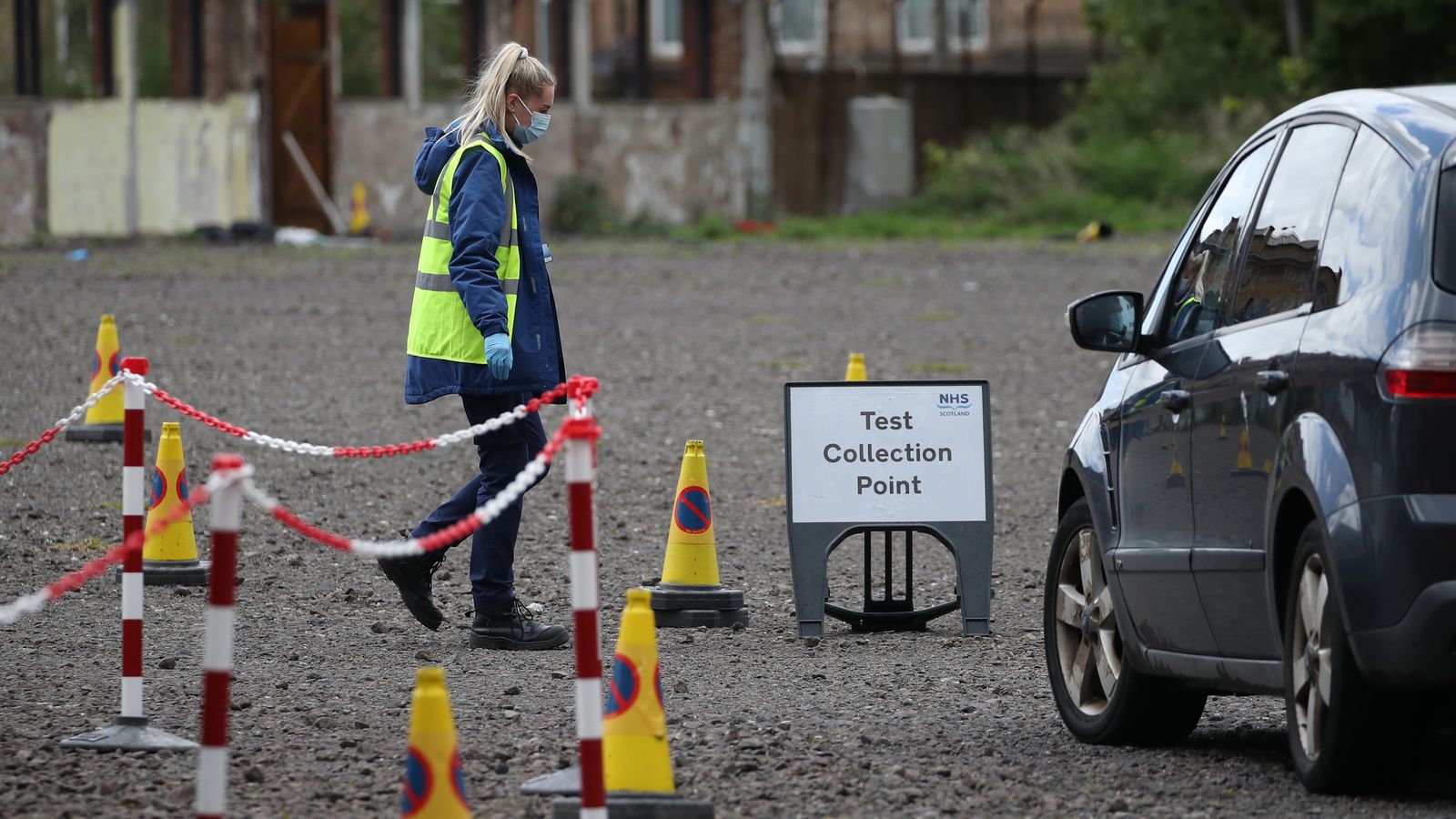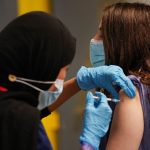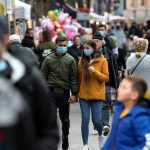This is a significant milestone in the pandemic: no deaths reported by the government in the daily stats for the first time since March 2020.
More than 127,000 people in the UK have lost their lives to coronavirus so far.
But daily deaths have tumbled from their peak of almost 1,400 in mid-January to low single figures for much of the last fortnight.
And while the long bank holiday weekend may well have resulted in a delay in reporting some deaths, the big zero today fits with the general downward trend.
The long spring lockdown did much of the early work.
But as the vaccine reached more of the vulnerable over-50s, it has been the rollout that has proved crucial in our slow exit from the COVID nightmare.
Almost 40 million people have now had their first dose; more than 25 million have had their second. No other major nation has protected a greater proportion of their population.
But now that we’ve celebrated, here’s the reality check.
These stats represent the spread of COVID-19 a month ago – it takes around four weeks from being infected for some people to first need hospital treatment and then die.
At the beginning of May, COVID cases were reaching a low – fewer than 2,000 a day.
But the combination of the lifting of lockdown and the Indian variant has led to an uptick in infections.
They’re now consistently above 3,000 new cases a day and some scientists have warned we are at the start of a third wave.
That’s translated into a small rise in hospital admissions, largely confined to a few hotspots.
So the question is, what happens next?
The vaccine rollout is far from over. A quarter of the population still hasn’t had one jab, half has yet to get the much better protection of two.
So there are many people left for the virus to infect and the models from scientists on the government’s SAGE (Scientific Advisory Group for Emergencies) committee suggest there will indeed be another wave of cases.
But deaths are unlikely to rise as much.
Research from Israel suggests two doses of the Pfizer vaccine prevent 98% of deaths.
So a surge in infections will still result in some deaths, but the toll should be much lower than in earlier waves.
What then for 21 June and the lifting of the final lockdown restrictions?
The advice of most scientists is that keeping them in place for a little longer would give more time for the vaccine to be rolled out to more people – and that will blunt the third wave.
But ultimately it is a political decision: how many more deaths are tolerable? Fewer cases will mean fewer lives lost. But delaying the final release from lockdown will put back the economic recovery.
You will have your own view on where the balance lies, and whether the prime minister, when he makes the call in the next couple of weeks, has got it right.






















